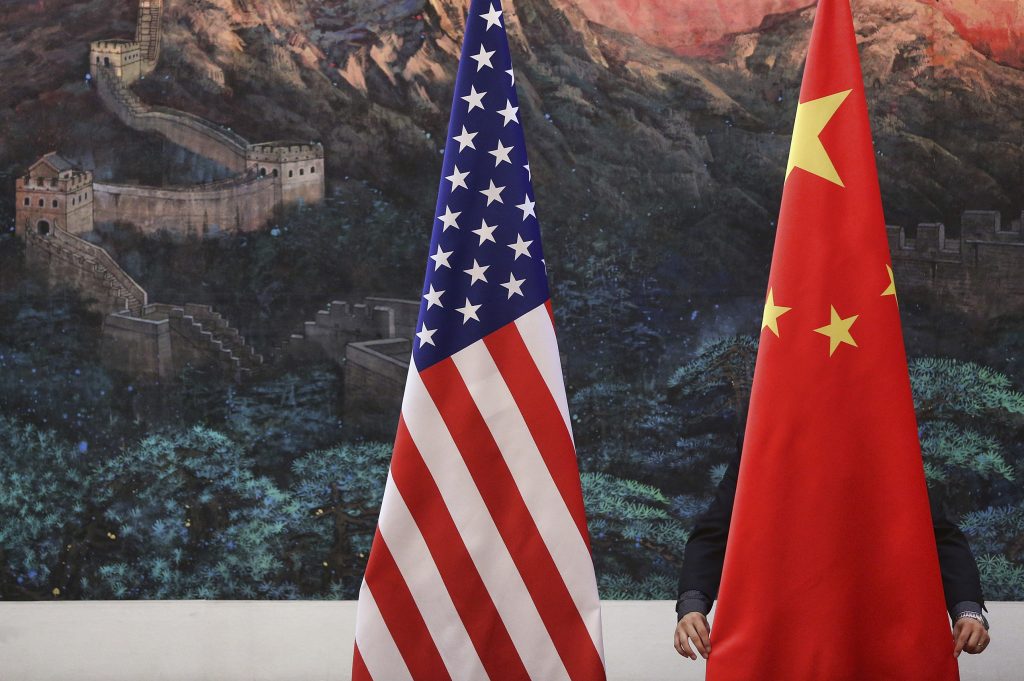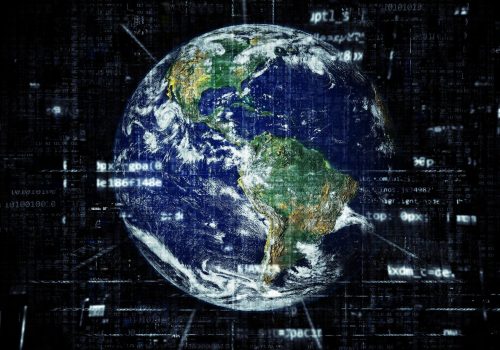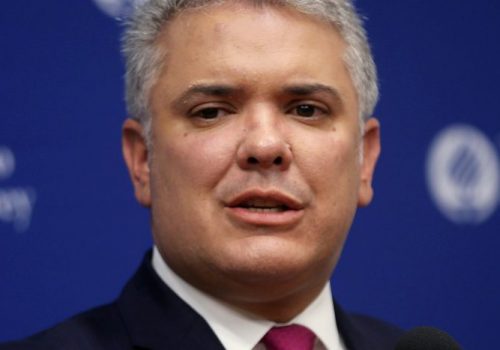Place your bets for the coming race to growth.
It will be an epic contest among the world’s most significant economies, with generational and geopolitical consequences. For context, think back to what the United States accomplished after World War II, when it rose as an economic power to shape a better world.
The post-COVID19 race could determine whether the United States rebounds in a manner that allows it to retain the mantle of global leadership. More likely for the moment, Beijing could leverage its first-mover advantage – alongside a faster economic recovery across Asian markets – accelerating the trend toward a Chinese-centric globalization.
Elsewhere, as President Macron argued this week to the Financial Times, the coming months could determine whether the European Union collapses as a political and economic project. The days ahead also could trigger a dangerous widening of the economic gap between emerging markets and the developed world – with escalating conflict and surging migration.
It may seem premature to predict which of the globe’s economies is likely to have the most robust and lasting economic comeback – and with what geopolitical impact. After all, this was a week in which the International Monetary Fund projected a 3% contraction in global GDP for 2020, the most dramatic drop since the Great Depression.
Yet it is the details behind that dismal forecast that should raise concerns within the United States and Europe. Their steeper economic declines and slower recoveries could lay the seeds for a long-lasting shift of global tectonic plates to China’s advantage.
Get the Inflection Points newsletter
Subscribe to Frederick Kempe’s weekly Inflection Points column, which focuses on the global challenges facing the United States and how to best address them.
Writing in Foreign Affairs, Pulitzer Prize-winning author and energy expert Daniel Yergin calculates that “virtually every available gallon of storage space in the world will be full by late April or early May. When that happens, two things will result: prices will plummet and producers will shut down wells because they cannot dispose of the oil.”
The IMF projected a United States economic decline of about 6% in 2020 and a contraction of the eurozone by 7.5%. That compares to projected Chinese economic growth for 2020 of 1.2% after a first quarter real decline of 6.7% – far less than the 10%-plus dip many experts had expected. The only group of countries in the world projected to be in positive territory are East Asian, at roughly 1%.
Even if one accepts that Chinese coronavirus fatalities likely are greater than their public figures and that the growth decline is likely larger, that doesn’t change the potential for a scenario that Deloitte and Salesforce this week referred to as “Sunrise in the East.”
Describing this scenario, as one of four possibilities they list, they write, “The global center of power shifts decisively east as China and other East Asian nations take the reigns as primary powers on the world stage and lead global coordination of the health system and other multilateral institutions.”
That comes with the broader acceptance of greater surveillance mechanisms as part of the public good, a faster recovery of East Asian countries with less economic impact from COVID19, and a significant ramping up of Chinese foreign direct investment to burnish its global reputation.
Still, the United States has a host of incumbent advantages that could serve it well if it uses its economic recovery to also strengthen its infrastructure, if it reverses runaway unemployment quickly, if it can tame political polarization and, most significantly, if it rediscovers its taste for collaborative global leadership.
In the economic race, no advantage is greater than the dollar.
China may be the world’s second largest economy, but the Chinese yuan makes up only 2% of global payments and reserves while the dollar accounts for roughly two thirds of foreign exchange reserves. The dollar underpins four-fifths of global supply chains.
The Economist reckons China could chip away at U.S. economic advantages through three underestimated strengths of its own: as a trusted debtor, an attractive creditor, and increasingly as a tech partner.
As a debtor, China’s $13 trillion bond market is the world’s second largest and has weathered the crisis well. Chinese debt returned 1.3% in the first quarter, vastly better than the 15.5% decline for other emerging market bonds. Over the same period, the Chinese market added $8.5 billion (60 billion yuan) in net inflows.
As a creditor, China has remained willing and generous, an approach that served the United States well after World War II. For example, it declared its willingness to back a G20 deal to suspend bilateral loan repayments by poorer countries, a sizable benefit also at its own cost.
On the tech front, few countries were as ready as China for money and people to go entirely online. Tencent and Ant Financial have more than a billion users each for their digital wallets, and they are expanding rapidly throughout Asia. OneConnect, an offshoot of China’s largest insurer, provides financial institutions in sixteen Asian countries with cloud-based services.
So, what other advantages can the United States leverage in this race?
Never underestimate the brittleness of an authoritarian country under stress. China’s broad censorship, it’s opaque legal system, and the nature of its surveillance state are hardly models to emulate.
Beyond that, Japanese Prime Minister Shinzo Abe is not alone in proposing that his country relocate high-value supply chains from China. If many countries do the same, the manufacturing foundation of China’s economy could erode.
The Financial Times’ Gideon Rachman adds that the global trust in the dollar is just one of two built-in U.S. advantages that are difficult to dislodge.
The other?
“Where, outside your home country, would you most like your children to go to university or to work?” he writes.
Most significant in this race would be if the United States regained its appetite for political and economic leadership as the world’s premier “convening power.”
That need not be done at the cost of China – or anyone else.
The race still can be won if U.S. leaders see it as a marathon and recall that much of the world long embraced their global leadership because partners learned they were more likely to win as American partners.
The economic rebound from COVID19 will be patchy and uneven. Being first out the gate will be significant, and that is likely to be China. Yet history has taught the United States that it’s victory will be longest lasting if it is achieved alongside partners and allies.
This article originally appeared on CNBC.com
Frederick Kempe is president and chief executive officer of the Atlantic Council. You can follow him on Twitter @FredKempe.
MUST-READS FROM A WORLD IN TRANSITION
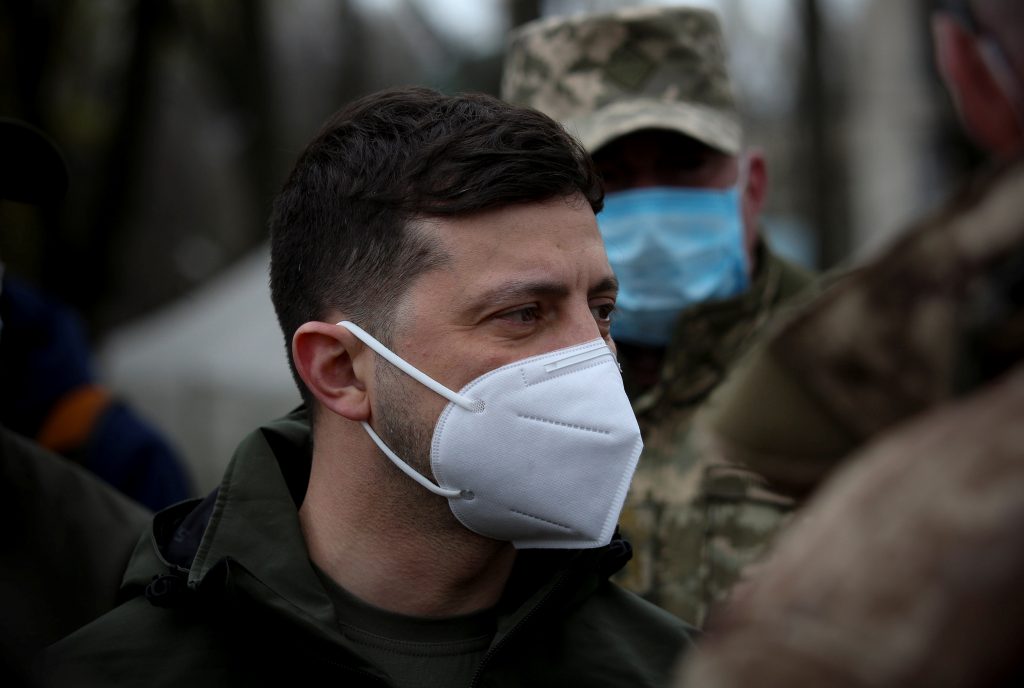
This week’s top reads include the IMF’s World Economic Outlook 2020, President Macron’s interview with the Financial Times, and a fascinating Foreign Affairs look at how it is the countries that best use digital surveillance technology – whether democratic or not – who are mastering the virus.
Also don’t miss this week’s #must-reads, which are off the COVID19 trail.
The French writer Bernard-Henri Lévy travels to the Ukrainian front of a war the world shouldn’t forget.
In the newest edition of Foreign Affairs, former Secretaries of State James Baker and George Shultz join Ted Halstead in laying out a climate plan that would put the U.S. at the lead of a clean energy future. The Atlantic Council’s Kathy McLeod reflects on how individual communities and cities can take the lead in providing climate adaptation and resilience.
#1. THE “GREAT LOCKDOWN”
2020 World Economic Outlook
INTERNATIONAL MONETARY FUND
I.M.F. Predicts Worst Downturn Since the Great Depression
Alan Rappeport and Jeanna Smialek / THE NEW YORK TIMES
The excellent IMF World Economic Outlook leaves one hoping that the situation doesn’t turn out to be worse than the forecast: a global economic contraction of 3%, an extraordinary reversal of more than six percentage points from the initial expectations of 3.3% growth. Read More →
“As countries implement necessary quarantines and social distancing practices to contain the pandemic, the world has been put in a Great Lockdown,” Gita Gopinath, the IMF chief economist, was quoted in The New York Times as saying. “The magnitude and speed of collapse in activity that has followed us is unlike anything experienced in our lifetimes.”
Her hope?
That this period doesn’t “reverse all the gains we have got from globalization.” Read More →
#2. MACRON’S WARNING
FT Interview: Emmanuel Macron says it is time to think the unthinkable
Victor Mallet in Paris and Roula Khalaf in London / FINANCIAL TIMES
It’s worth reading the FT’s interview with the French president for several reasons.
It underscores how an FT editor now joins a head-of-state conversation, via video link to the golden room first used by President Charles de Gaulle. It reflects the disorientation felt by the normally sure-footed Macron as he gropes for solutions to this “anthropological shock.”
Most interesting were his barely veiled warnings that the German and Dutch reluctance to mutualize European debt at this historic moment could undermine the European Union. “We are at a moment of truth,” he said, “which is to decide whether the European Union is a political project or just a market project…We need financial transfers and solidarity, if only so that Europe holds on.” Read More →
#3. TECHNOLOGY FOR GOOD
Technology Can Help Solve the Coronavirus Crisis If Government Steps Up
Mira Rapp-Hooper and Samm Sacks / FOREIGN AFFAIRS
One of the primary coronavirus lessons isn’t that authoritarian governments are better at dousing the pathogen. Rather, it is that the countries that have done best – democratic or not – are those that “have relied on digital surveillance technology to help track, contain, and manage the disease,” write Mira Rapp-Hooper and Samm Sacks in Foreign Affairs.
“Washington has already missed the opportunity to use digital tools that could have saved lives in the early months of the crisis,” they write. “Now it stands poised to miss a chance to use them to save more lives as well as the economy – unless it can learn from the choices that other countries have made.” Read More →
#4. COVID19 AND CLIMATE
The Strategic Case for U.S. Climate Leadership
James A. Baker III, George P. Shultz, and Ted Halstead / FOREIGN AFFAIRS
Building a Resilient Planet
Kathy Baughman McLeod / FOREIGN AFFAIRS
If the coronavirus teaches us anything, it that the cost is far greater to contain a crisis that to prevent one in advance. If only for that reason, it’s worth reading Foreign Affairs’ special edition on climate issues.
Two pieces caught my eye.
In the first, three prominent Republicans – former Secretaries of State James A. Baker III and George P. Shultz, and Ted Halstead “propose here an environmentally ambitious, economically sound, and politically feasible plan that situates the United States at the forefront of a clean energy future, enhances the competitiveness of U.S. firms, and allows all Americans to benefit directly from emission reductions.” Read More →
In the second, the Atlantic Council’s own Kathy Baughman McLeod makes the case that it isn’t only international organizations and big government that can render the world more resilient.
“The good news is that when it comes to adaptation and resilience, individual communities and cities across the world can take the lead on their own,” she writes. “Local steps toward climate adaptation, along with higher-level financial protections and resilience, can counter that despondency with proven and durable solutions—and might, in the process, even create the momentum for more unified and inspired global action.” Read More →
#5. UKRAINE’S FORGOTTEN WAR
A Visit to Europe’s Front with Russia
Bernard-Henri Lévy / THE WORLD STREET JOURNAL
Bernard-Henri Lévy remains one of the world’s most prominent chroniclers from the frontlines of freedom. So, even in a coronavirus-obsessed world, travel with him to Ukraine where he reports richly on the sixth year of Ukraine’s fight against pro-Russian separatists in the Donbass.
Come with him to a morgue where he finds a young man in a fresh uniform with his head blown off. Travel on to a field hospital in Pokrovsk, where he visits the fallen soldier’s wounded buddy to get the story of what had happened.
“He is silent at first and has the feverish, absent look of those for whom nothing maters except to feel a little less pain,” writes Lévy, describing his wounds. “He tells us two things in a weak yet steady voice: He was hit by shrapnel as he jumped into the trench to man his post after morning duties. And he had placed too much confidence in the European patrols that are supposed to monitor the cease-fire..”
Levy closes with an appeal to “heedless Westerners” that this forgotten war in Ukraine “should lie heavy on our collective conscience.” Read More →
QUOTE OF THE WEEK
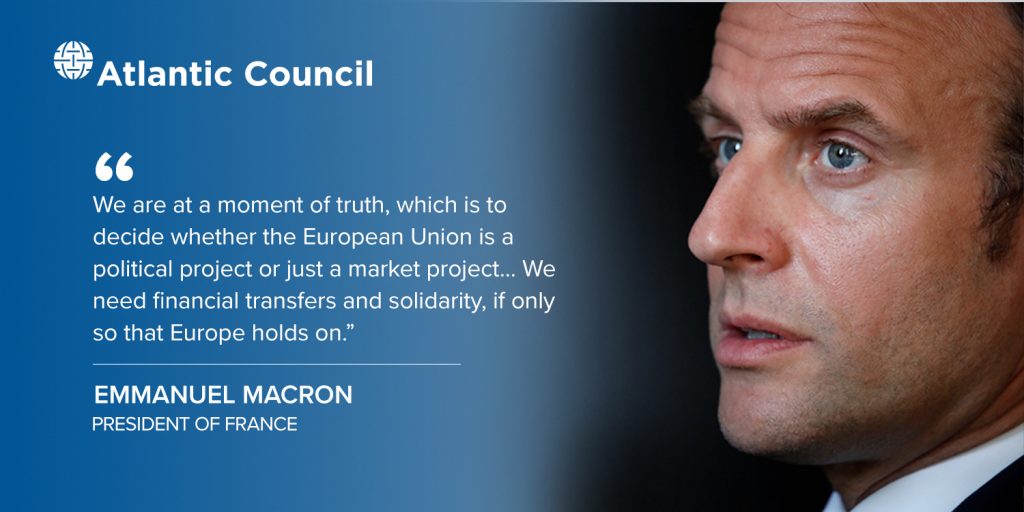
ATLANTIC COUNCIL TOP READS
Image: A Chinese man adjusts a China flag before a news conference attended by Chinese Foreign Minister Yang Jiechi and U.S. Secretary of State Hillary Clinton at the Great Hall of the People in Beijing September 5, 2012. REUTERS/Feng Li/Pool
